Social work: Clinical social work
At a glance
Faculty
Academic degree
Master of Arts (M.A.)
Form of study
Continuing education and part-time Master's degree
Standard period of study
6 semesters (incl. Master's thesis), 90 ECTS
Language of instruction
German
Start of studies
Summer semester
Admission requirements
Costs
plus semester fee: 1,650 euros per semester (1 to 5); in the 6th semester: 900 euros, semester ticket for Coburg University of Applied Sciences included
Accreditation
Accredited by the Accreditation Council: 3rd successful re-accreditation
Registration
October 01 – December 31
Profile of the degree program
The part-time Master's degree course "Social Work: Clinical Social Work" is particularly suitable for professionals who work in psychosocial counselling, care and treatment and want to specialize against the background of increasing isolation and exclusion of marginalized, previously hard-to-reach people.
Clinical social work sees itself as a service to people who are struggling to lead a dignified life and often fail to do so because of obstacles of a social and institutional nature.
The course is run in cooperation with the Alice Salomon University of Applied Sciences Berlin. Thanks to many years of experience and internationally recognized teaching staff, the cooperation has resulted in joint expertise, which is expressed in a qualified Master's programme. This gives students access to extensive knowledge resources and scientifically sound qualifications.
As the course takes place in equal parts in Coburg and Berlin, it broadens perspectives and flexibility. The group size of around 25 students enables optimal knowledge transfer. Due to the international recognition of the Master of Arts (M.A.) degree, there is cooperation with foreign universities.
The Master's degree course will professionalize your counselling and practical skills. You will acquire a theoretically sound and practice-oriented qualification in counseling, psychosocial intervention and social therapy. You will apply the knowledge you acquire during your theoretical studies at both universities to the analysis and solution or processing of social-clinical tasks. This in turn flows into case reflection and supervision, which are integrated into the curriculum.
The course is geared towards the needs of working people. Here you will find an overview of the attendance times at the Coburg University of Applied Sciences and the Alice Salomon University of Applied Sciences Berlin.
What we value
Teaching and learning methods: Self-study and learning support
Learning in the seminars is designed to be experiential and practice-oriented. Students are given theoretical input and apply the methods they have learned in seminar papers. Working in small groups, role plays and practical simulations also play an important role in the learning process. Professional self-awareness and multi-perspective approaches to the individual content reinforce the learning effect and the ability to transfer what has been learned into practical work. Self-study during the Master's course is accompanied by continuous peer group work and supportive supervision. This involves, among other things, the organization of self-learning processes, time management, the development of individual learning goals, the linking of theory and experiences of professional practice, and the reflection of one's own actions.
Application of knowledge in complex and changing practice
The knowledge and skills acquired by clinical social workers are not only about methodological know-how, but also about the creative application of knowledge in complex and changing practice and the ability to create new knowledge through research, to reflect on it and to translate it into practical action.
Services that make studying easier
Coburg University of Applied Sciences offers a comprehensive range of services. From studying with children to support with financing your studies.
Course content and schedule
The course comprises five semesters of on-campus study and one semester of professionally supervised preparation of the Master's thesis. In the modularized course, "ECTS" describe the time required, i.e. classroom teaching including preparation and follow-up work, self-study and examinations. One "ECTS point" corresponds to 30 hours. This results in approximately 2700 hours of work for the entire Master's degree course. Spread over three years of study, this amounts to around 15 working hours per week. There are a total of five block courses per semester, four of which are 3-day workshops and one 5-day workshop. E-learning and blended learning support and supplement the face-to-face courses at both universities. The part-time Master's program is divided into five study areas.
Learning objectives
The Master's degree course enables you to bring specialized clinical knowledge and specialized social work treatment skills to the health and social services. You will be qualified to provide independent and autonomous psycho-social counseling and treatment. The aim is to overcome psycho-social stress, crises and illness through social integration.
- Competence of the 'Scientist Practitioner': By developing your clinical expertise, you will be able to respond appropriately and professionally to complex bio-psycho-social health problems and tasks on the basis of scientific theories and findings. This also includes being able to recognize new developments and challenges against the background of internal and interdisciplinary discourse and to respond to them innovatively. You will acquire a broad spectrum of quantitative and qualitative clinical research methods for the evaluation and quality assurance of clinical social work and for use in scientific research.
- Interprofessional communication skills: You can communicate complex health-related bio-psycho-social, multisectoral problems in the context of multidisciplinary cooperation. This includes systematically reflecting on your own professional actions in the context of complex practice conditions, taking into account personal resources, abilities and limitations. In this way, you will participate in intra- and interdisciplinary discourses and at the same time strengthen your own professional identity.
- Ethical competence and leadership skills: As a clinical social worker, you are familiar with various ethical questions of value orientation and reflect on these in the critical context of social work activities, taking into account the self-determination of clients. You will be able to take professional responsibility for ethical concepts and thus help to resolve ethical dilemmas.
Study area 1
The subject of study area 1 is the theoretical foundation. Divided into two modules, the curriculum in this area of study covers the scientific approaches and fundamentals of clinical social work (KlinSa), as well as law and ethics.
Study area 2
Study area 2, consisting of three modules, enables students to carry out well-founded scientific work with clinical research methods and evaluation. On the basis of a broad spectrum of quantitative and qualitative research methods, students acquire the qualification to conduct independent evaluation, quality assurance and research.
Study area 3
Study area 3 leads to in-depth and extended intervention and planning skills on the basis of theoretical and methodological knowledge. Within the framework of four modules, students acquire knowledge and the ability to act independently in counselling, counselling, crisis intervention, social therapy, psychosocial diagnostics and organizational and system-oriented clinical social work.
Study area 4
In study area 4, you will deepen your professional practice and self-reflection in theory, practical exercises and application in counseling and therapeutic tasks. In two modules, students deal intensively with the interlocking of theory and their own practice in relation to addressees, areas of work and activity as well as institutions, settings and forms of work with hard-to-reach clients.
Study area 5
In the final study area 5, students complete the curriculum with the Master's thesis. Students acquire the skills of scientific research and topic identification as well as the planning and implementation of an empirical study on a problem or question from the field of clinical social work independently and in consideration of the developing scientific knowledge.
What students say
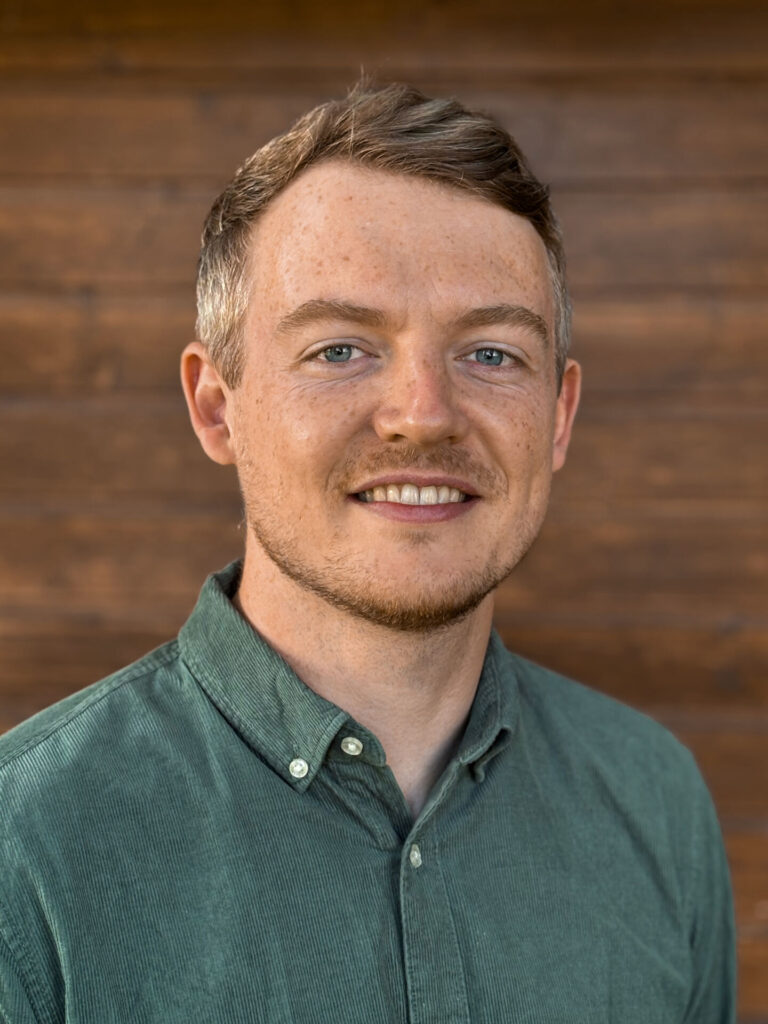
"After completing my Bachelor's degree in Social Work, I knew that I wanted to continue my studies. On the one hand, I wanted to pursue my interest in research, which was sparked by my Bachelor's thesis, and expand my skills in this area.
Secondly, I realized that my toolbox of methods for working with refugees who have experienced trauma was not yet sufficient. Thanks to the Klinsa Master's degree, I have been able to achieve both goals so far: The lecturers have encouraged my interest in academic work and even enabled me to contribute to my first publications during my studies. In addition, by acquiring skills in psychosocial diagnostics and client-centered counseling, for example, I was able to learn important skills that I use in practice every day."
Jeffrey Newell (student in the continuing education master's program Social Work: Clinical Social Work)

"My interest in the part-time Master's degree was already awakened during my Bachelor's degree in Social Work at Coburg University of Applied Sciences through corresponding specialization modules. This made me aware of the close biopsychosocial connections between health and embedding in social relationships. In my subsequent professional practice, I realized that I needed more specialist expertise and professional confidence in my work with children, adolescents and families with multiple psychosocial stressors.
The Master's provides me with sound theoretical and methodological knowledge to understand the development and maintenance of my clients' difficulties and to be able to work with them to develop solutions. I can also use concepts such as clinical case management, methods and approaches from counseling and crisis intervention or psychosocial diagnostics directly in my work with young adults with severe biographical problems. We also receive in-depth training in the field of practical research, so that we can implement our own ideas for research. Last but not least, since completing my studies, I feel more clearly positioned in my professional self-image as a clinically trained social worker – for example, in collaboration with other professional groups."
Larissa Retzmann (student in the Master's program in Social Work: Clinical Social Work)
Job & Career
The field of healthcare will expand and differentiate significantly in the coming years due to demographic changes, such as increasing life expectancy, and medical-technical developments. Due to the increased demands, special qualifications and professional standards are required, such as those taught on a Master's degree course. With the Master's degree program at Coburg University of Applied Sciences, you will not only be prepared for the future, but also versatile.
Increasing differentiation
According to the forecasts of associations and organizations, the field of healthcare will expand and differentiate rapidly in the coming years. Demographic changes and medical-technical developments suggest that people will live longer. However, this increase in life expectancy is often accompanied by physical and psychosocial limitations or even disabilities. An increasing demand for social care is to be expected here. Clinical social work is a response to the need for intersectoral cooperation as defined by the WHO. After all, health is not only produced by the healthcare system, just as disorders are not only treated there. Experts assume that the health situation of socially disadvantaged sections of the population will deteriorate in the coming years. For social work, this may mean that services in the area of outpatient, day-care and inpatient healthcare services will become more important. Special qualifications and professional standards – such as those taught on the Master's degree course – are necessary due to the increased needs and requirements. Health-related expertise is therefore just as necessary in the social sector as social and socio-therapeutic expertise in the healthcare sector.
Fields of work
- inpatient, day-care and outpatient facilities for child, adolescent and adult psychiatry,
- (Day) clinics and practices
- Social psychiatric services
- Therapeutic shared apartments and assisted living
- Family, child and youth welfare
- Working with traumatized children and adults
- Working with victims and perpetrators of physical, psychological and sexual violence
- Specialist, acute and rehabilitation hospitals
- Outpatient and inpatient addiction counseling, addiction therapy
- Resocialization and help for those at risk
- work with the elderly and geriatric psychiatry as well as self-help projects.
What alumni say:
Maite Gabriel
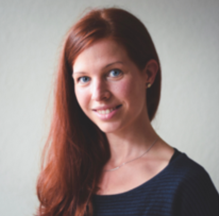
"The Master's degree gave me the opportunity to develop a clear professional identity and a stronger sense of self-confidence towards other professions. […] I now see myself clearly at home in social work. I have not pursued the idea of using the Master's degree as a basis for training in child and adolescent psychotherapy, as it has become clear to me that many of the people I work with are hardly reached by traditional psychotherapy. […]"
Maite Gabriel (Clinical Social Worker M.A.) and research assistant at ASH Berlin
Lisa Große
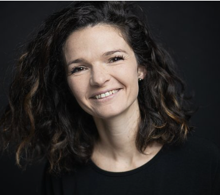
"After completing a generalist Bachelor's degree, I was looking for further development opportunities.
opportunities – professionally and personally. The part-time Master's in Clinical Social Work has enabled me to feel at home in social work. My work with clients has changed as I have discovered blind spots and have been able to present myself confidently to other professions. Last but not least, I only discovered my interest and curiosity in science and research through the Master's degree. The lecturers sensitized and strengthened us in our actions and attitudes. […]" Hier gehts zum kompletten Interview.
Lisa Große (Clinical Social Worker M.A.)
Adrian Golatka
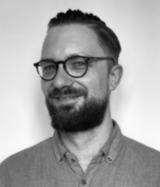
"The course has supported me in my professional development in many ways. I was able to directly apply the knowledge I gained both in my direct work with clients and in my work as a manager in youth welfare. The course has given me a wide range of "tools".
In addition, the content I learned has given me a solid foundation for my child and adolescent psychotherapy training. […] Last but not least, I made important contacts during the years of my studies that are still relevant today." […]
Andrian Golatka (Clinical Social Worker M.A.)
Maria Littig
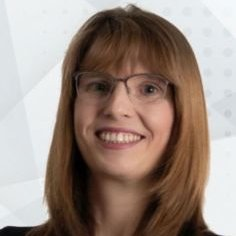
"I was particularly impressed by the close link between the academic content of the course and the systematic reflection of my own professional actions. As a result, I am now much more aware of issues such as chronic illnesses, psychosocial problems and marginalization. Since then, not only has my own professional attitude changed fundamentally, but also my way of working, incorporating a bio-psycho-social understanding. From the very beginning, I was able to integrate theories from my studies directly into my sociotherapeutic work and thus also question processes. I quickly experienced the first positive changes in my direct client work, which in turn motivated me to continue deepening my knowledge. Studying clinical social work gave me the opportunity to realize and develop myself professionally. I was very lucky to receive the full support of my colleagues and superiors right from the start."
Maria Littig (Clinical Social Worker M.A.)
Do your doctorate now!
Completion of the Master's degree as a further professionally qualifying higher education qualification generally establishes eligibility for doctoral studies or admission to a doctoral program.
Insights
You are currently viewing a placeholder content from YouTube. To access the actual content, click the button below. Please note that doing so will share data with third-party providers.
More InformationNews from the study program
The 15th episode of the German Society for Social Work (DGSA) science podcast focuses on clinical social work: Listen now
"The podcast provides information about the phenomenology (what is and what does clinical social work do?) as well as the beginnings of the history and the work of the section. The content is made very understandable for different target groups and yet explained in a professional manner. The podcast thus offers students, professionals and university colleagues a well-founded and, in many places, detailed insight into the developments and status of clinical specialist social work and, in my opinion, invites them to engage with this field – almost playfully – and to inspire students to do so. I'm sure the podcast will inspire many people to read the new handbook and join the section!"
Prof. Dr. Silke Birgitta Gahleitner
There is also something new on TikTok: To TikTok
Costs
The part-time Master's degree course in Social Work: Clinical Social Work is subject to a fee. In semesters 1 to 5, there is a fee of 1,650 euros (plus the current semester fees) per semester. In the 6th semester, a fee of 900 euros (plus the current semester fees) is payable for the intensive support and supervision of the Master's thesis. For each semester following the 6th semester, a fee of EUR 350.00 (plus the current semester fees) is charged for administrative and supervision costs.
Curriculum and examination regulations
The module handbook provides information on the content of the individual modules. The study and examination regulations form the legal basis of the degree program.
Questions about the content of the program will be answered by the program director.
Prof. Dr. Christine Kröger
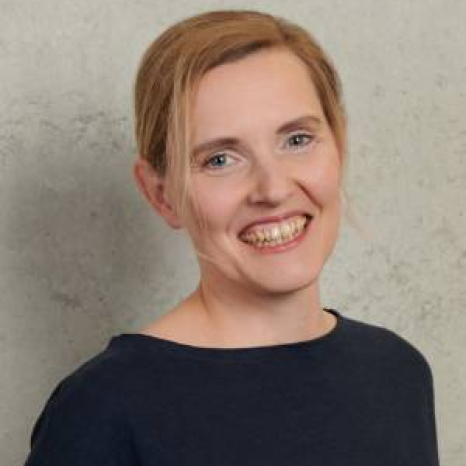
Application and admission
Places on the Master's degree program "Social Work: Clinical Social Work" are limited to 25 participants. The admission requirements include:
- a successful completion of a first professionally qualifying university degree at a German university or an equivalent degree at a foreign university
- at least one year of relevant professional practice (in particular psychosocial, educational, medical fields of work with counseling, treatment and therapeutic tasks) on a full-time basis or a correspondingly longer period of professional practice on a part-time basis. The activity must have been carried out after completion of the first university degree.
- a contract for employment corresponding to the requirements of the curriculum for at least 15 hours per week or at least a binding promise of such a contract from an employment agency (the nature and type of professional activity must be made credible)
- the motivation for the application should be explained in a letter of motivation in relation to the personal study goals
Sufficient knowledge of German, at least language level B2, is required to be able to understand and process complex specialist literature.
You will also need a basic knowledge of English for the evaluation of specialist literature and a good knowledge of the usual word processing programs.
In accordance with Section 2 (3) of the admission regulations, a first university degree with at least 180 ECTS credits is required for admission to the Master's in Social Work: Clinical Social Work. The Berlin Higher Education Act § 23, paragraph 3, point two also stipulates that 300 credit points are generally required for a Master's degree, including the first professionally qualifying university degree. This can be deviated from in individual cases if the student is suitably qualified.
The applicant must provide evidence of the relevant qualifications individually in the online application process. Their competencies must be set out in a self-disclosure form and supported by appropriate evidence.
In the case of a BA degree with 180 ECTS, a total of 270 ECTS would have been acquired after completing the Master's degree. In Germany, you are only entitled to do a doctorate with 300 ECTS credits; students are advised accordingly if they wish to do a doctorate.
Information for applicants with a BA degree with less than 210 ECTS
- Information on the application and admission process
- Directly to the online application



